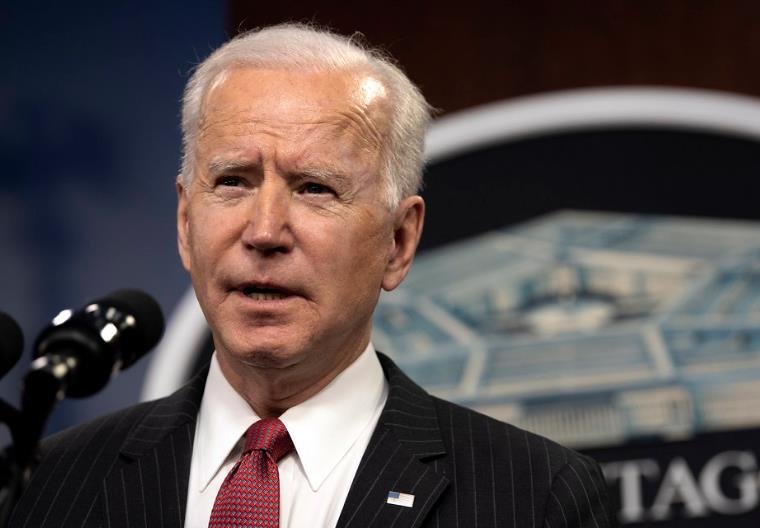US President Joe Biden has expressed his hope that a ceasefire between Israel and Hamas will be reached by next week, as the war in Gaza enters its fifth month and a hostage crisis continues.
Biden made his remarks on Monday, during a visit to New York, where he met with UN Secretary-General Antonio Guterres and other world leaders. He said that his national security adviser had informed him that the negotiations for a ceasefire were close, but not done yet.

“My hope is by next Monday we’ll have a ceasefire,” he told reporters.
The US has been playing a key role in mediating the conflict, which erupted on October 7, 2023, when Hamas militants infiltrated southern Israel, killing about 1,200 people and taking 253 others hostage. Israel responded by launching a massive air and ground campaign in Gaza, targeting Hamas and other militant groups.
The US has been providing Israel with military and diplomatic support, while also calling for a peaceful resolution of the conflict. It has also vetoed several UN resolutions that condemned Israel’s actions and called for an immediate ceasefire.
However, the US has also faced criticism from some of its allies and partners, as well as from human rights groups, for not doing enough to stop the bloodshed and the humanitarian crisis in Gaza.
The humanitarian situation in Gaza and Israel
The war has resulted in the deaths of 29,782 people in Gaza, according to the Hamas-run health ministry, and 1,100 people in Israel, according to the Israeli military. The UN estimates that 1.9 million civilians in Gaza have been displaced by the Israeli airstrikes and ground operations, accounting for 85% of its population.
The UN has also warned that Gaza is facing a severe shortage of food, water, electricity, and medical supplies, and that its infrastructure has been severely damaged. It has appealed for $1.4 billion in humanitarian aid for Gaza and the West Bank.
Israel has also suffered from the war, as it has faced thousands of rockets and mortar shells fired by Hamas and other militant groups from Gaza. Many Israelis have been living in fear and under constant alert, especially in the areas near the Gaza border.
Israel has also faced international condemnation and legal challenges for its alleged violations of international law and human rights in Gaza, such as the targeting of civilians, journalists, and medical facilities.
The hostage crisis and the prospects for a ceasefire
One of the main obstacles to a ceasefire is the hostage crisis, which involves 253 people who were taken by Hamas during the initial attack on October 7. Among them are 12 Americans, 8 Canadians, 6 Britons, and 5 Australians.
Hamas has demanded the release of 1,000 Palestinian prisoners held by Israel, as well as the lifting of the blockade on Gaza, as conditions for the release of the hostages. Israel has rejected these demands, and has insisted on the unconditional and immediate release of the hostages.
The US and other countries have been trying to secure the release of their citizens, as well as to facilitate a prisoner swap between Israel and Hamas. However, the talks have been complicated by the lack of direct communication between the two sides, and by the mistrust and animosity that have characterized their relationship.
The US and other mediators, such as Egypt, Qatar, and Turkey, have been working to find a formula that would satisfy both sides and pave the way for a ceasefire. Some reports have suggested that a deal could involve a six-week pause in the fighting, during which the hostages would be released and the humanitarian situation in Gaza would be addressed.
However, both sides have also expressed their readiness to continue the war, if their demands are not met. Israeli Prime Minister Benjamin Netanyahu has said that Israel will not stop until it has achieved its goals of restoring security and deterrence. Hamas leader Ismail Haniyeh has said that Hamas will not surrender or compromise on the rights of the Palestinian people.
